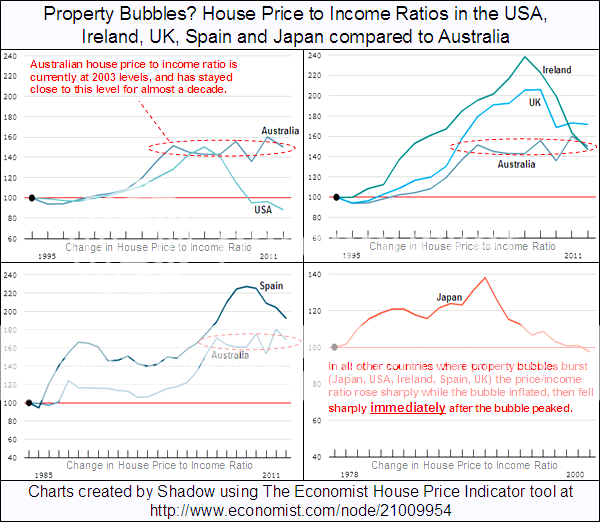Another Irish story. This time it comes from Monty Munford's blog.
One friend told me confidentially about his posh hose. He had bought at the height of the Celtic Tiger, a million Euro mortgage costing him six grand a month. By his estimates the value had plunged not by the official figure of 45%, but closer to 70%.
Furthermore, and incredibly, he hadn't paid that mortgage for three years, that's 36 x 6,000 Euros and he hadn't received a single letter from his bank questioning the arrears. Bonkers, and it appears that the Irish judiciary are refusing to rule in favour of banks against individuals because the judges consider them culpable for the whole sorry mess. Ergo nobody was paying their mortgages any more.
If that's the situation on the ground then I can't see the Irish property market recovering for a few years yet. Either there is going to have to be a wave of evictions and foreclosures, or some element of debt forgiveness, because if a large part of the population isn't paying their mortgages, they won't be in a position to move. Negative equity will see to that.
For those with a stronger grasp of international finance than me, there's a piece on FT Alphaville about Irish promissory notes.
One friend told me confidentially about his posh hose. He had bought at the height of the Celtic Tiger, a million Euro mortgage costing him six grand a month. By his estimates the value had plunged not by the official figure of 45%, but closer to 70%.
Furthermore, and incredibly, he hadn't paid that mortgage for three years, that's 36 x 6,000 Euros and he hadn't received a single letter from his bank questioning the arrears. Bonkers, and it appears that the Irish judiciary are refusing to rule in favour of banks against individuals because the judges consider them culpable for the whole sorry mess. Ergo nobody was paying their mortgages any more.
If that's the situation on the ground then I can't see the Irish property market recovering for a few years yet. Either there is going to have to be a wave of evictions and foreclosures, or some element of debt forgiveness, because if a large part of the population isn't paying their mortgages, they won't be in a position to move. Negative equity will see to that.
For those with a stronger grasp of international finance than me, there's a piece on FT Alphaville about Irish promissory notes.


